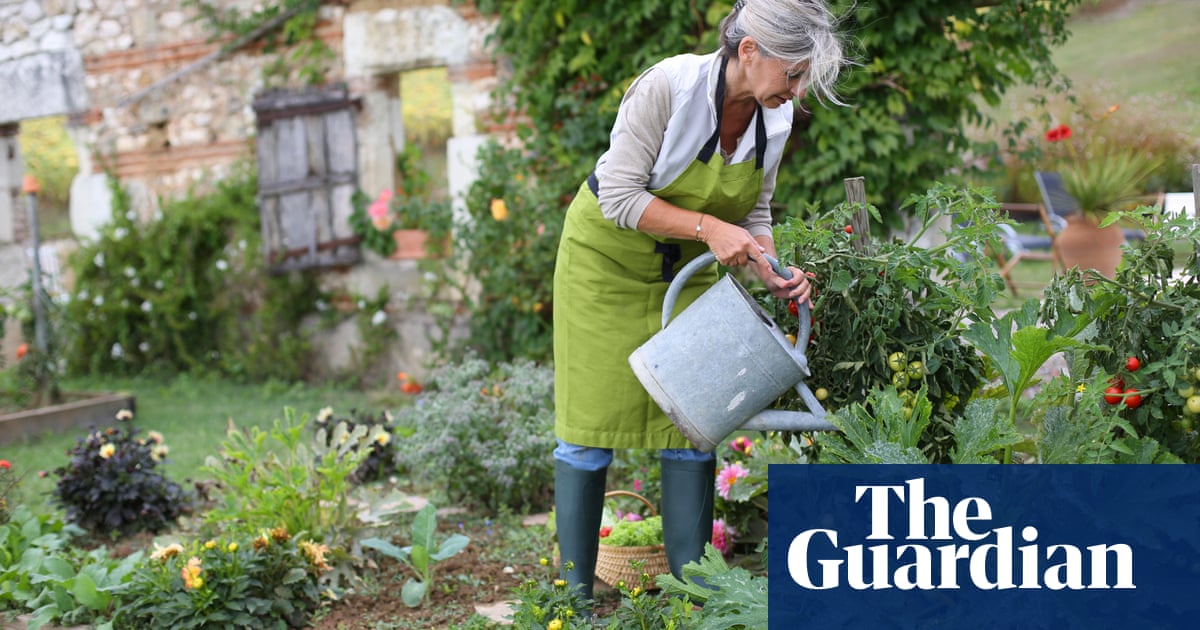
“Babe, listen to me, I can’t,” says a giggling Lisa Riley. “I can’t even play a note yet, I’ll just sound like a ship coming in to dock.”
Sitting on a cushion in her Yorkshire home, the Emmerdale actor had been listing her new-found quarantine pastimes – a Joe Wicks workout every morning, a double dose of meditation and a self-set challenge to learn how to play the Emmerdale theme tune on her partner’s flute – when I ask her to give me a quick recital.
It’s in the other room, she explains. Rather than popping next door to get it, she opts to improvise. “It would sound something like this,” she says, before a noise emerges from her mouth that we agree is best compared to a kazoo. “See what I mean?”
Just like the rest of us, the 43-year-old soap star is adjusting to life in lockdown. But Riley is finding the respite from 12-hour days on the ITV set to be a welcome break. “I normally come home, jump in the bath and go through the next day’s lines. And then it’s already past 10pm and I’m going to bed, setting my alarm for 5.50 the following morning.”
Despite a slimmed-down output, ITV has confirmed Emmerdale will run out of episodes at the end of this month; Coronation Street will do so in June. It remains unclear what will happen next. While it’s no great surprise that soaps – just like every other mainstay of British culture – now exist in a state of uncertainty, their encroaching disappearance from our screens will be tough for those who settle down on the sofa most nights of the week to catch up with what’s happening in soapland.
“We’re like a crutch for people,” says Riley. “Tuning-in is like visiting your own family.” And when so many of us are separated from our loved ones, saying goodbye to another batch of familiar faces will be an even more painful loss.
For Dan Brocklebank – better known as Billy Mayhew, the Coronation Street vicar – that sense of isolation has long been present. Living alone with his two dogs in his Manchester mid-terrace, the actor is already counting the days. He talks for 11-and-a-half minutes uninterrupted after I ask a simple “How are you?”
When he turned 40 in December, Brocklebank set himself a challenge: to renovate his house into a “livable” state. With the downstairs already mostly completed, he has turned his attention to the small yard out the back. It means he has plenty to get on with: painting garden walls and laying down slabs. “There’s shrubbery arriving today I need to plant despite the fact I don’t know which way the garden faces,” he explains. “I’ll just stick it in and hope for the best ... which seems to be a good rule for life anyway.”
When he’s not working on his home makeover, Brocklebank is filling his time baking cakes (from a packet), having conversations with his stomach in the shower and entertaining/irritating his neighbours by belting out piano tunes. And after posting a jokey tweet in late March about a night out in at a fictional #DansBar in his living room (“They’re giving away a free glass of prosecco on entry … as you can see the place is packed”), he and fellow cast and crew have been posting pictures to appreciative fans as they get drunk together on Zoom, dressing up as bunnies or in togas depending on the dress code imposed on the night.
As episodes run thin, viewers may well turn to social media as a way of keeping in contact with soap stars and their characters, but Brocklebank hopes the show will find a way to carry on. “We’ve not been off air for 60 years,” he says. “At the moment, people want to cling on to things which feel familiar.”
It’s a testament to just how strange our current circumstances are that we’re turning to soaps – exaggerated and necessarily overly dramatised versions of everyday life – to remind us of what used to be normal. But having been filmed months in advance, that’s exactly what shows such as Corrie are able to do. Brocklebank sees no way that soaps won’t have to adapt when filming starts again. “We will have to expect massive changes in the way the building is run if social-distancing rules still apply,” he says. “How the hell are makeup artists going to do hair and makeup? How can I portray a loving relationship with someone on screen if I can’t go within two metres of them?”
There will be more existential questions for the teams of producers, directors and writers. Soaps set out to mirror our here and now: Christmas shows on Christmas; newsworthy events of the day nodded to with clever editing and forward planning. Once lockdown is over, we will no longer be confined to our homes. How soaps acknowledge the long-term impact of coronavirus, without showing it in real time, presents a whole set of challenges. “We represent social issues reflective of wider society,” says Brocklebank. “Who knows what Weatherfield might look like post-Covid? None of us do. It will change, though, that’s inevitable.”
While most soaps offer escapism during a global pandemic, Casualty is doing the opposite, offering a window into the workings of A&E, now more than ever the last place you want to find yourself. But Amanda Mealing – who has played the consultant Connie Beauchamp in Holby City and Casualty since 2005 – reckons the world’s attention turning to health and hospitals is bringing more viewers. “There’s a curiosity from those who might not watch the programme regularly to see how emergency departments work,” she says. “People are fascinated to see what life is like for doctors and nurses on the frontline.”
While for some it seems learning to value NHS workers has been a revelation, for Mealing it is nothing new. With a family full of medics, and plenty of time spent on research trips in hospitals, she hopes that, once this is over, her real-life counterparts will get the recognition and acknowledgment they have always deserved.
Although not a medical professional, she is doing what she can at home to help the national effort: dusting off her sewing machine to make masks; volunteering to deliver food and prescriptions in her community. “Quite a few have been taken aback that Connie Beauchamp, the doctor from Casualty, is delivering their medicine,” she says with a laugh.
Life often feels a little simpler over in Ambridge and, without the need to film, The Archers has found it easier than its televised counterparts to adapt. Airing five rather six episodes a week has bought the BBC Radio 4 show some time to draw up a new way of working, and after a small gap during the first three weeks in May – when, having run out of pre-lockdown recordings, archive episodes are being rerun – the Archers will return to the airwaves in a new form.
Cast members – such as Charlotte Martin, who has played Susan Carter since the early 80s – have been busy recording monologues at home that will be woven together into new episodes.
“Characters thinking out loud is the best way I can describe it,” Martin says from her DIY home studio (a corner of the landing covered in duvets to cushion the sound) in Birmingham. “It will be reflections from characters, but without interaction.” Not being able to reflect real rural life for a period has felt strange to Martin and her colleagues; it’s something they take pride in. “One of the positives of this situation, though, has been seeing a greater sense of community in our own lives. Bringing that to The Archers is going to be a great comfort to our listeners, especially those feeling cut off or alone.”
Recording The Archers isn’t a full-time job for Martin even in normal circumstances. She works as a research psychologist at Warwick University as well. And with more time stuck at home, she has discovered some new hobbies. She’s doing what she can to get fit by the time quarantine is over; on Friday nights she and her neighbours dance to disco tunes (at a safe distance) out in the street.
Through it all, casts – many of whom have worked together day in and day out for decades – are keeping in close contact. And that’s as true for the residents of Albert Square as anywhere else. “We’ve got a group WhatsApp where we chat,” says Diane Parish, who plays Denise Fox in EastEnders, who has noticed she’s speaking to her colleagues more than she otherwise might do on set.
“We are a strong, if occasionally dysfunctional family. If someone is having a down day we cheer them up; we’re seeing pictures of the kids we’ve never met.” If anything, she says, the cast are closer now than they were on the Square. “It’s really beautiful how we’ve all come together,” she says. “We’re all saying we should try to keep it up whenever we finally go back.”












